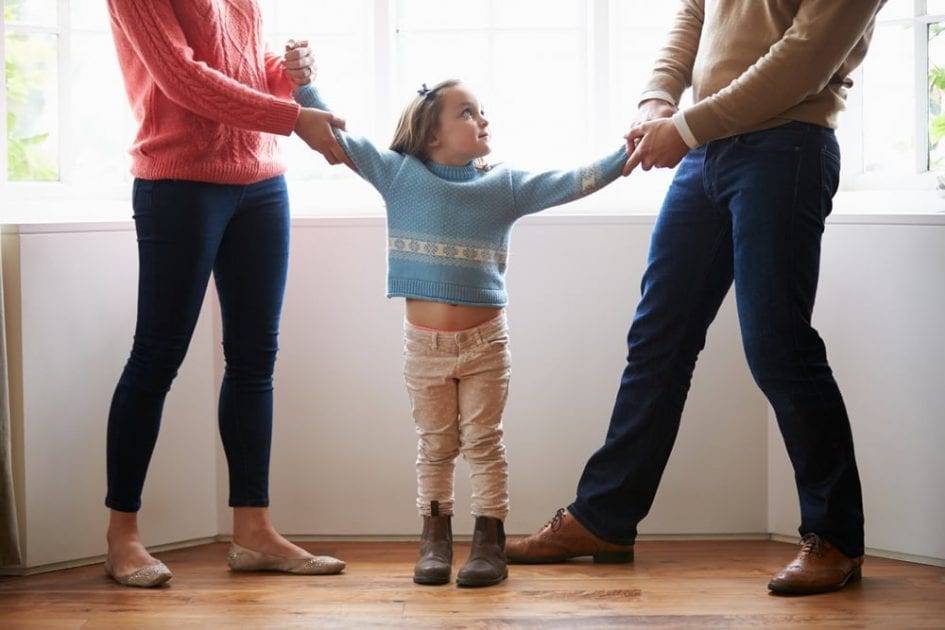Children and Divorce: “Children of Divorce Benefit From Both Parents”

Children and Divorce: The Role Of Having Both Parents Nearby, and Involved.
In my coaching and therapy practice, I frequently consult with parents who are separating or going through a divorce. Children and divorce, when heard in the same sentence, if often words that strike fear into the hearts of parents.
When children and divorce combine with parents seeking to relocate, divorce often becomes very, very messy. In some situations, parents seek to relocate hours away from their ex-partner. The courts, when evaluating children and divorce issues, often turn to mental health professionals to offer their opinion. Frequently, mental health experts have supported such relocations based upon the presumptive value of a stable custodial parent, and assume that there will be more happiness and support with an extended family or perhaps a new partner or new employment.
This can be a touchy topic for parents going through a divorce. And yet, it is difficult if not impossible, to accurately claim that we know for certain a particular choice is in the “best interest” of a child.
Children and Divorce: Highly Dysfunctional Relationships.
There are times when parents divorce, and it is clear that their relationship is highly dysfunctional, and having both parents involved causes harm to children. This is an extremely rare situation and applies to those parents where there is violence or extreme personality disorders, or perhaps there is a psychotic or substance abuse parent. Again, these are relatively rare situations and are best evaluated by an independent expert.
This is not the norm for parents who are going through a fairly typical divorce and are angry and unhappy with each other. This is not the norm for most couples. In most situations, having both parents involved is good for children.
In the past, mental health professionals frequently supported the overwhelming importance of the primary caretaker. In other words, we have valued that role in a way that minimized the importance of the parent who may be the breadwinner for the family (often, but not always, dad). Yet, most of us are able to recognize that this doesn’t make sense for the modern family where both parents play a very active role in the children’s lives. Now, recent data supports what most of us intuitively understand:
Children Going Through Divorce Thrive More Often With Both Parents Involved!
Some fascinating data has emerged in the last decade, and this research strongly supports the value of having both parents involved (in the majority of situations—not all).
Within four years of separation and divorce, about one-fourth of mothers with custody move to a new location. Many fathers obviously disagree with this move, and this poses a dilemma for the courts. In essence, the court struggles with a custodial parent’s desire to create better circumstances for themselves versus the interest of the non-custodial parent’s desire to maintain frequent contact with their children.
In the past, the laws have treated this in an unpredictable manner. Judges have been free to interpret the law in a way that leads to inconsistent decisions.
While the legal issues here are considerably complex, new evidence emerges when we focus on the effect upon children. By 1998, there was not a single study that had examined this.
However, in a 2003 study published in the Journal of Family Psychology, researchers looked at the effect of relocation, as reported by college students who had experienced a divorce.
The data in this study are quite compelling and worthy for parents to consider.
Researchers found eleven variables that demonstrated significant effects on college students. For children whose parent’s relocated more than an hour away, they were disadvantaged on the following variables:
• Less financial support for college expenses.
• More worry about college expenses.
• Decrease personal and emotional adjustment.
• Decrease general life satisfaction.
• Larger degree of hostility.
• Greater internal turmoil and distress.
• More impairment in rapport with parents.
• Less respect for parents as role models.
• Parental relationship between each other significantly impaired.
• Global health reduced (primarily for girls)
These results point to a common-sense conclusion supported by most parents who remain together: “the kids need both parents.” There was no data to support this general conclusion until recently. However, these results are quite compelling.
In my program, Terrific Parenting Through Divorce, I discuss the importance of careful thought to children and the effects of divorce, as well as the kinds of critical decisions parents can make to buffer their children from the impact of divorce. You may want to check out my manual for children and divorce.




